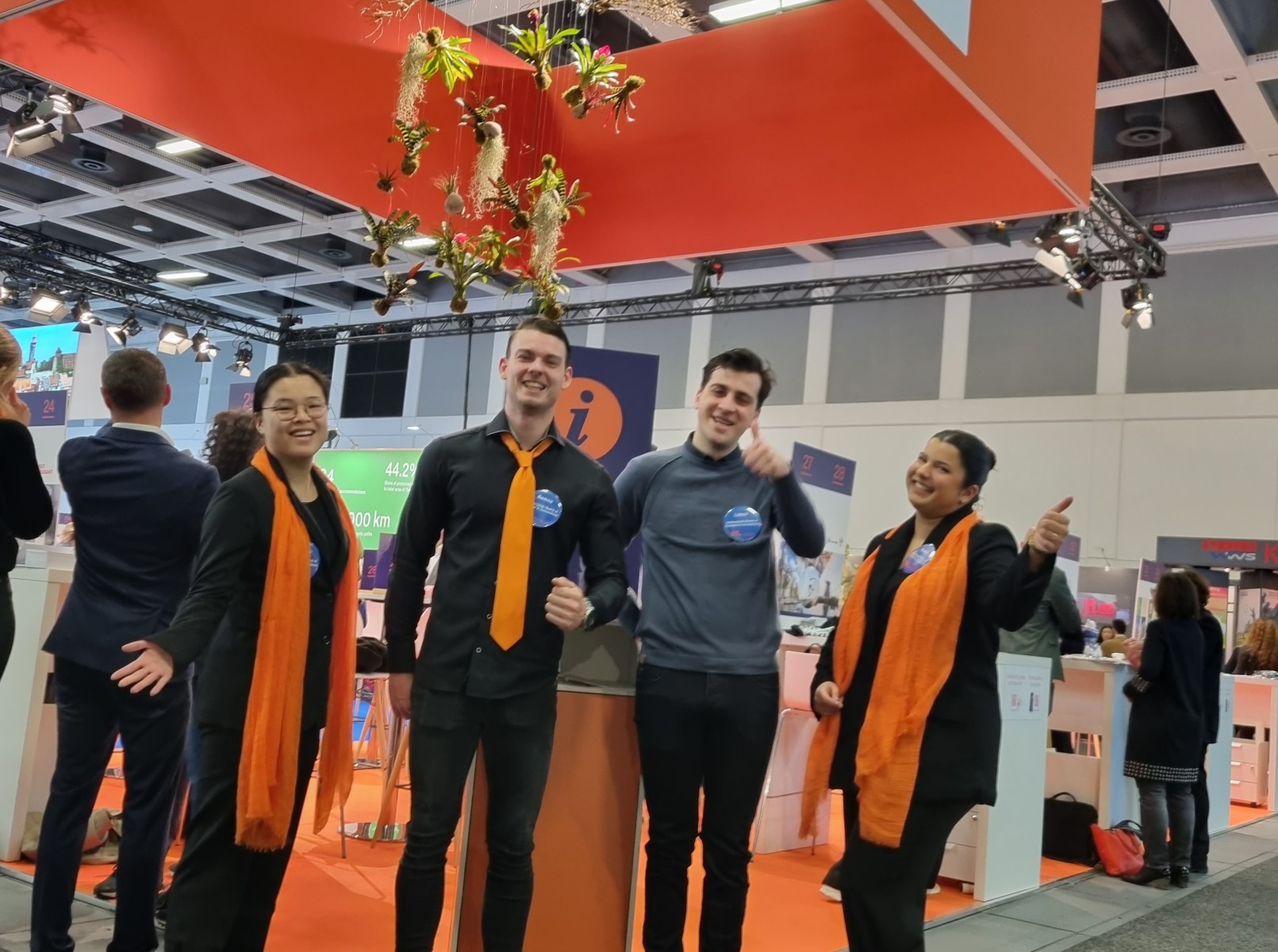Inholland University of Applied Sciences presents research at the ITB in Berlin
‘Sustainable tourism is not a ban on flying; it’s a more conscious approach to travel’

Between 7 and 9 March Berlin will be hosting the ITB, Europe’s largest tourism trade fair. Ko Koens, Professor of New Urban Tourism, will be there, as will several colleagues from the brand new Expertise Network Sustainable Urban Tourism (ENSUT) and students from the Creative Business Faculty. At the invitation of the NBTC (Netherlands Board of Tourism & Conventions) he is to give a presentation on sustainable tourism and international research recently carried out into it. ‘Tourism must make cities better places for their residents, local businesses and the natural environment,’ he insists.
ENSUT will take to the international stage in Berlin well before its official kick-off, which is not until May this year. Among other topics, visitors to the ITB will discuss sustainable tourism in urban areas. But what exactly is ‘sustainable tourism’? According to Ko, it’s a concept that says there is much more to tourism than an economic model that churns out as many overnight stays as possible. ‘It’s about striking the right balance between planet, people and profit, thereby also ensuring that tourism remains viable in the future.’
When it comes to making tourism more sustainable, the term sustainable tourism itself can be counter-productive.
What’s in a name?
Paradoxically, when it comes to making tourism more sustainable, the term sustainable tourism itself can be counter-productive, continues Ko. ‘People are often under the misconception that sustainability means no longer being able to travel by air, or that they should not go on holiday as often’ he explains. ‘It generates resistance, which is hardly conducive to bringing about a change in behaviour. We need a different narrative, one that emphasises the opportunities. It’s about being more conscious of travelling and the enjoyment that we derive from it: taking in that special experience that travelling offers.’
Improved by tourism
Truth be told, Ko doesn’t think that sustainable tourism goes far enough. Tomorrow’s tourism, he explains, should be ‘regenerative’. Cities need to be made better places for their residents, local businesses and the natural environment. Tourism should help to improve the quality of life in city districts, make public transport profitable, maintain and thus preserve cities’ heritage, and contribute to energy transition. ‘The first step towards realising all this is to assemble all stakeholders per location so they can share their perspectives. Then it’s a matter of ownership: establishing who will take the lead in developing regenerative tourism. Actually, these are the key themes that drive ENSUT.’
Regenerative tourism should be the overall goal for the future.
Mostly proponents of regenerative tourism
In a survey of residents of Amsterdam, Rotterdam, Copenhagen, Berlin and Barcelona recently carried out by ENSUT, some 62 per cent of respondents were in favour of regenerative tourism, with 23 per cent being undecided. Residents of these cities believe that, in addition to local government and the business community, they themselves also have an active role to play. However, so far they have seen too few initiatives that could actually involve them.
Ten million German tourists
Martin Pohl, Market & Insight Manager of NBTC in Germany, says that sustainability is a cornerstone of Perspective 2030, a vision paper written with the input of more than 100 stakeholders from the tourism sector. ‘In 2030 the Netherlands expects to welcome 10 million visitors from Germany, which constitutes both an economic opportunity and an ecological threat,’ he cautions. ‘The challenge lies in using the right distribution policy and making sustainable choices to steer it all in the right direction. But it also involves a change in behaviour: a shift from taking many short breaks to fewer, but longer, holidays that offer more time and quality at the destination.’
Regenerative tourism must either become the norm, or a specific study specialisation of tourism programmes.

Educating with new knowledge
Martin agrees with Ko that, in itself, striving for sustainability is not enough. He is convinced that regenerative tourism should be the overall goal for the future and that research into how to put this into practice is very important. ‘There is a large sustainability lab on the Greek island of Rhodes, for example, and the value added by a network like ENSUT definitely shouldn’t be underestimated. Through education, it facilitates the transfer of new knowledge to tomorrow’s professionals, the people who are set to be the pioneers of regenerative tourism.’ Picking up the thread, Ko adds that educational institutions can start applying regenerative tourism on the basis of positive framing and viable business cases. ‘This will then either become the norm, or a specific study specialisation of tourism programmes.’
We should travel as little as possible? I don’t agree.
Not just the younger generation
Fourth-year Communications student, Lance Herweijer, is one of the students welcoming visitors to the ENSUT desk in Berlin. When asked whether he is consciously preoccupied with sustainable travel, he concedes that he finds it a somewhat vague term. This is mainly because sustainability covers so much, including the discussion about emissions, for example. ‘It also seems to imply that we should travel as little as possible, which I don’t agree with,’ he says. ‘Nowadays I think more about how I travel. Perhaps that might be part of the solution: we should all make more conscious choices and do more to preserve the authenticity of the destination. And that’s a responsibility that’s not just borne by the younger generation.’
At Inholland, we focus on sustainable solutions that improve quality of life, both in the present as well as in the future. Our campaign ‘Inholland onderzoekt’ showcases what we are currently working on.


